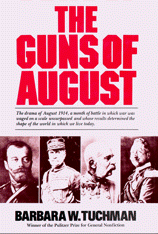 |
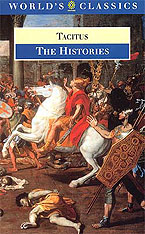 |
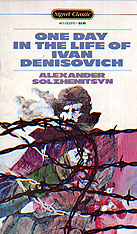 |
 |
|
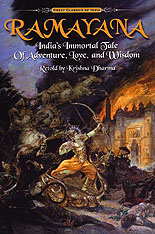 |
![]()
In my mind, there are two two parts to what a historian does (or the process of writing history) More on the writing part later!
One of the exercises that I often do when I teach either HIS 101 or 102 is an in-class exercise in which I have students in groups "write" the history of the first day of class, which usually was just three days ago. It is a relatively simple exercise, but that is what historians do. They tell the story of the past.
Now the first part of the process, the task of reconstructing the actual events of the past can be relatively straight-forward in this particular example (with other historical efforts, this can be pretty difficult). Most students forget that as they undertake the writing of the "first day of class" history, they have a variety of sources available to help them write that history. These sources might include: class notes, documentary evidence such as handouts, electronic evidence such as a web page, oral interviews with other students or the instructor, physical evidence such as the room furniture. All of these are beyond the simple memories of the students, and all can help in the reconstructing of that first class.
Now the second part of writing history is usually something that students in this project completely forget about, and that is the task of interpretation; the "why is it important? issue. The importance questions can be phrased on different levels: is it important to you personally; important to the class, the college, the world? No matter, in all cases of historical endeavor, the author must face foremost the question of why is the subject important. In particular, why is that history personally important to the historian.
So, in quick conclusion, a historian (first) tries to reconstruct the past accurately and then (secondly) to come to grips with, or assess the importance/relevance of, that past.
![]()
In doing history, there are several questions that always occupy (better to say frustrate) the historian.
- A historian is always confronted by the fact that his sources in writing history will be incomplete (to a greater or lesser degree), and that has to be accounted for or dealt with in the writing.
- Those sources can also be contradictory.
- Are there sources existing, but just not available? This is a major problem in dealing with Russian history, and especially with recent, contemporary history.
- What are the different perspectives that can be brought to bear on an issue, and which is the correct approach to use to explain a historical problem? For example, in studying the Cuban Revolution: Do you look at ideology? What about the relationships of the main participants? Should you study the actions of the crowd? Or the psychology of the crowd? What about socio-economic factors? Geographical factors?
- How far past is the past for a historian to write about the past and to have that considered as history?
![]()
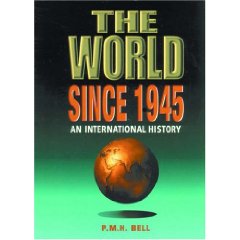
Look, there are a lot of books with this kind of title available out there. An Amazon.com search, found 1,615 results, and these were just the ones in English. Now, of course, some of these results were just bizarre variations of the search query, but the first 50 or so books all seemed to deal with the same topic. So why are they all available? Or more importantly, which is right, which is the correct one?
Well, if we were going to evaluate all of these books, one thing that we could do is look at the coverage of specific event, such as the construction of the Berlin Wall in August 1961. Each author will emphasize different facts (one might look at the flight of the intellectual elite from East Berlin; another might choose to put the Wall in the context of international events of the early 1960s such as the Kennedy election or the Cuban Revolution; another author might focus on the specific personalities of the East German leader Walter Ulbricht or the Berlin mayor Willy Brandt). Each author will then reach slightly different conclusions based on the differing fact selections.
Are they all wrong, or just all partially right? Is there an absolute degree of correctness attainable by any author writing this particular history?
![]()
Here are some famous quotes about the study of history from two different sources (hnn.us/articles/1328.html and www.wisdomquotes.com).
- History teaches us that men and nations behave wisely once they have exhausted all other alternatives. Abba Eban
- All history is an attempt to find pattern and meaning in a section of human experience, and every historian worthy of the name raises questions about man's ultimate destiny and the meaning of all history to which, as history, he can provide no answers. The answers belong to the realm of theology. G. B. Caird
- History, in brief, is an analysis of the past in order that we may understand the present and guide our conduct into the future. Sidney E. Mead
- There is no history, only fictions of varying degrees of plausibility. Voltaire
- To be ignorant of the past is to remain a child. Paraphrase from an observation by Cicero
- We learn from history that we do not learn from history. Hegel
- History isn't really about the past - settling old scores. It's about defining the present and who we are. Ken Burns
- There will always be a connection between the way in which men contemplate the past and the way in which they contemplate the present. Henry Thomas Buckle
- Men make their own history, but they do not make it just as they please; they do not make it under circumstances chosen by themselves, but under circumstances directly found, given and transmitted from the past. Karl Marx
- History proves nothing because it contains everything. Emil Cioran
- Every work of history constructs contexts and designs forms in which past reality can be comprehended. History creates comprehensibility primarily by arranging facts meaningfully and only in a very limited sense by establishing strict causal corrections. Johan Huizinga
- History furnishes to politics all the arguments that it needs, for the chosen cause. Romain Rolland
- History is, in its essentials, the science of change. It knows and it teaches that it is impossible to find two events that are ever exactly alike, because the conditions from which they spring are never identical. Marc Bloch
- I thought it necessary to study history, even to study it deeply, in order to obtain a clear meaning of our immediate time. Paul Valery
- Everyone falsifies history even if it is only his own personal history. Sometimes the falsification is deliberate, sometimes unconscious; put always the past is altered to suit the needs of the present. The best we can say of any account is not that it is the real truth at last, but that this is how the story appears now. Joseph Freeman
- Anyone who believes you can't change history has never tried to write his memoirs. David Ben Gurion
- Those who cannot learn from history are doomed to repeat it. George Santayana
